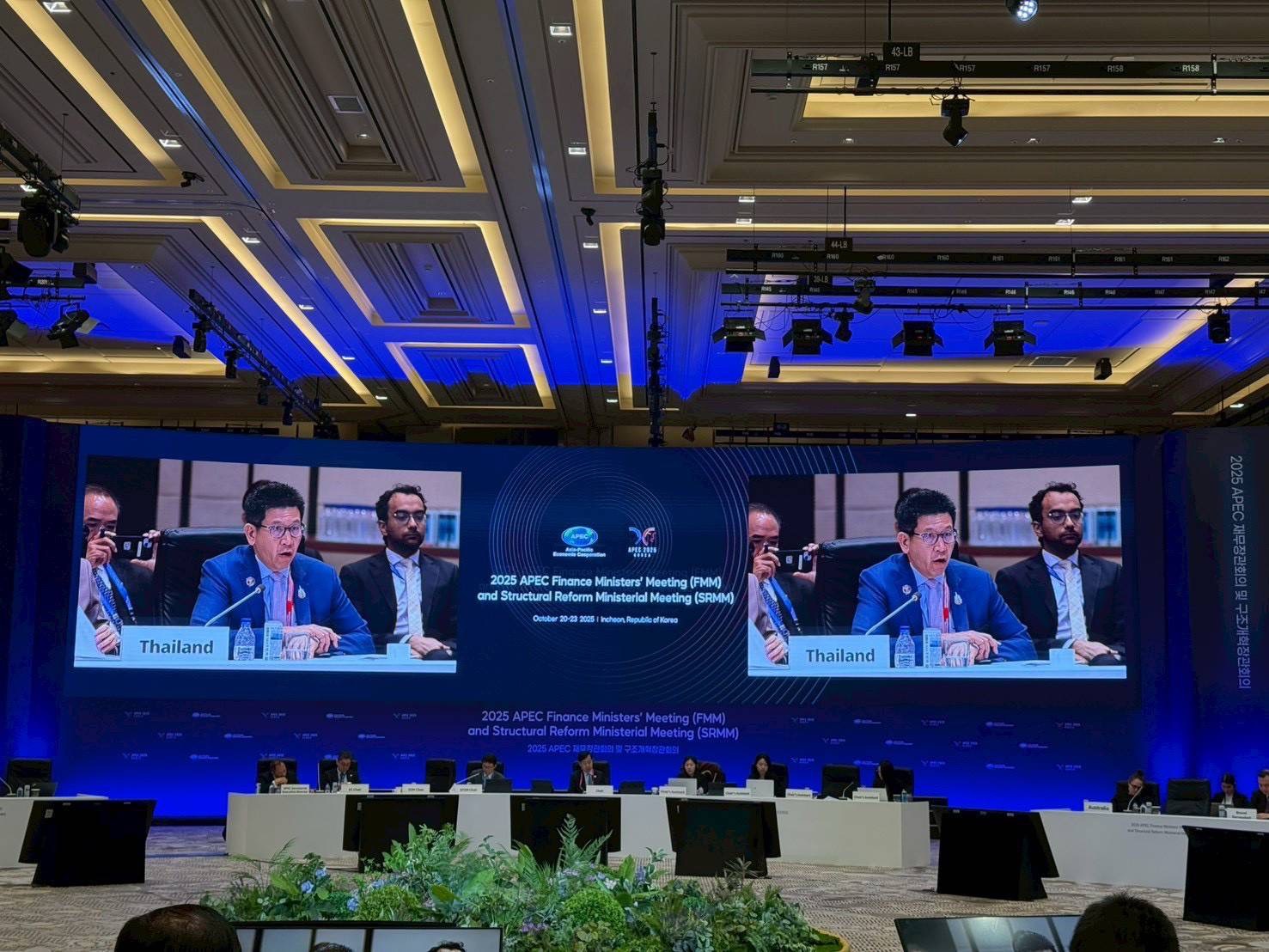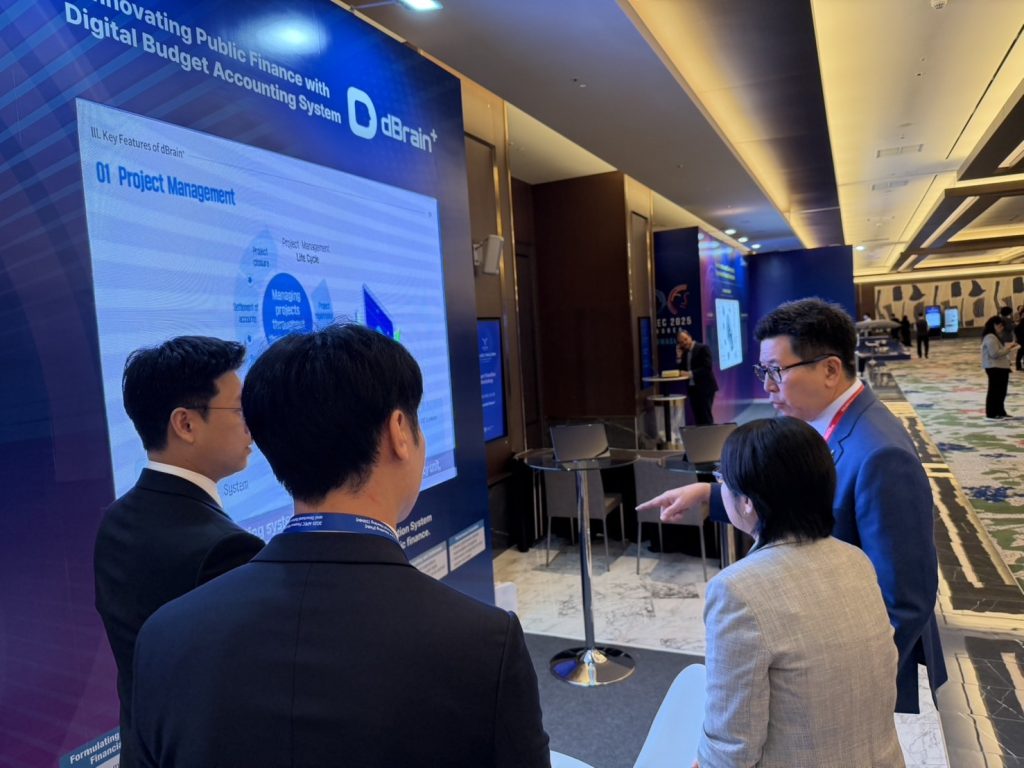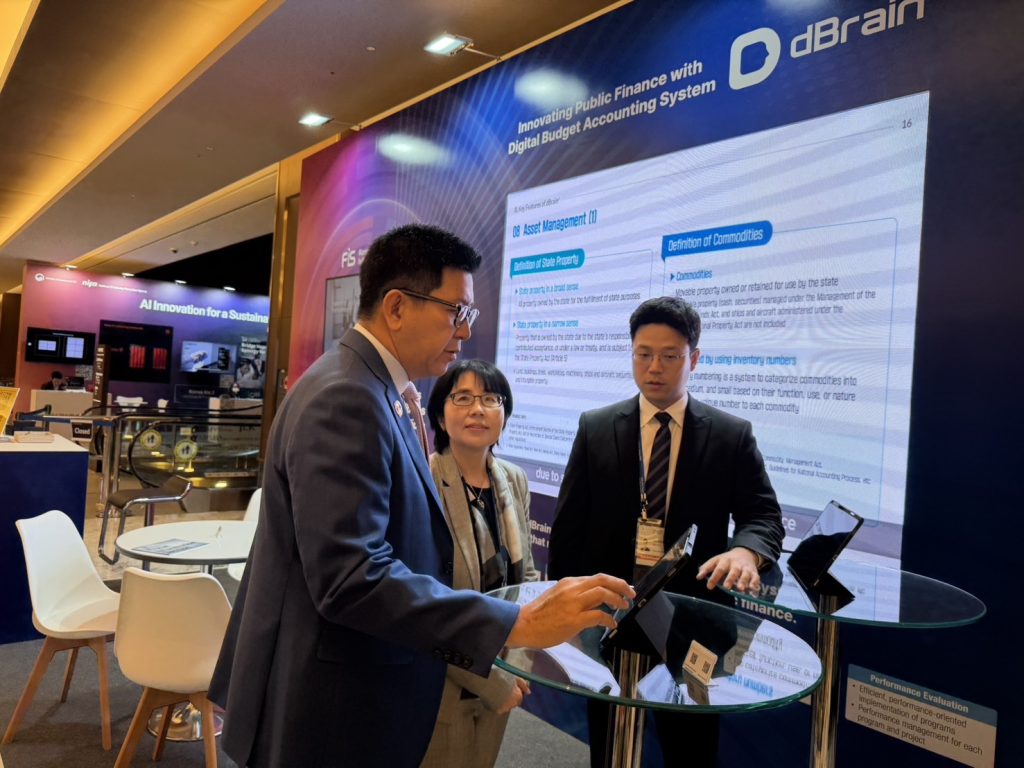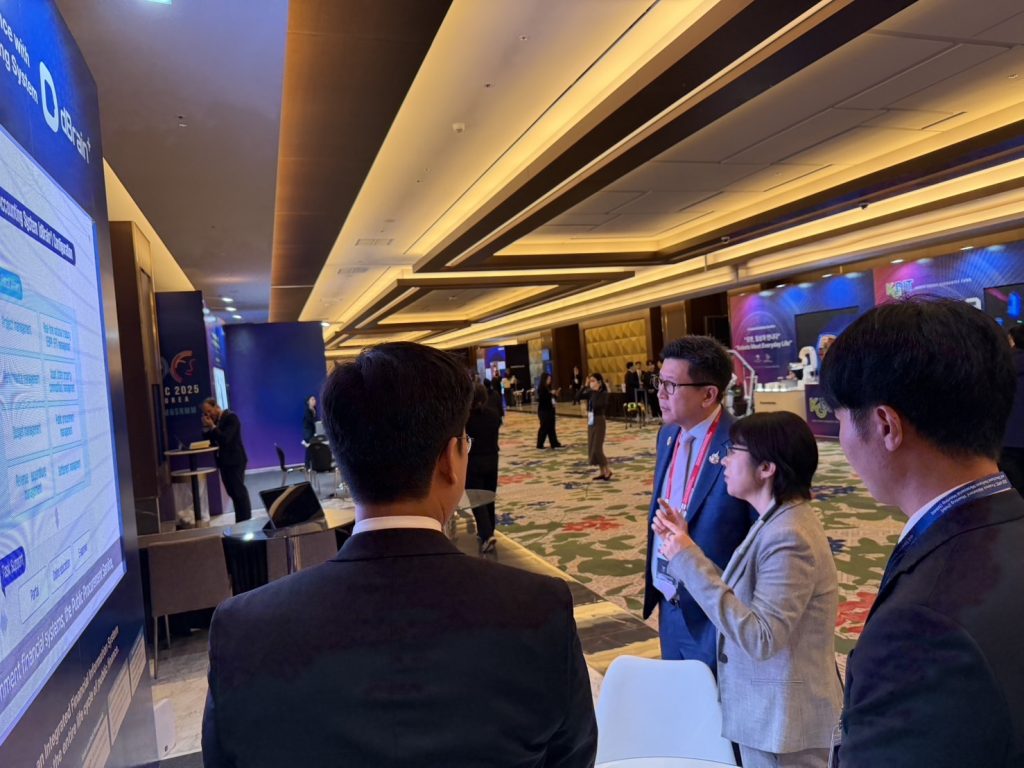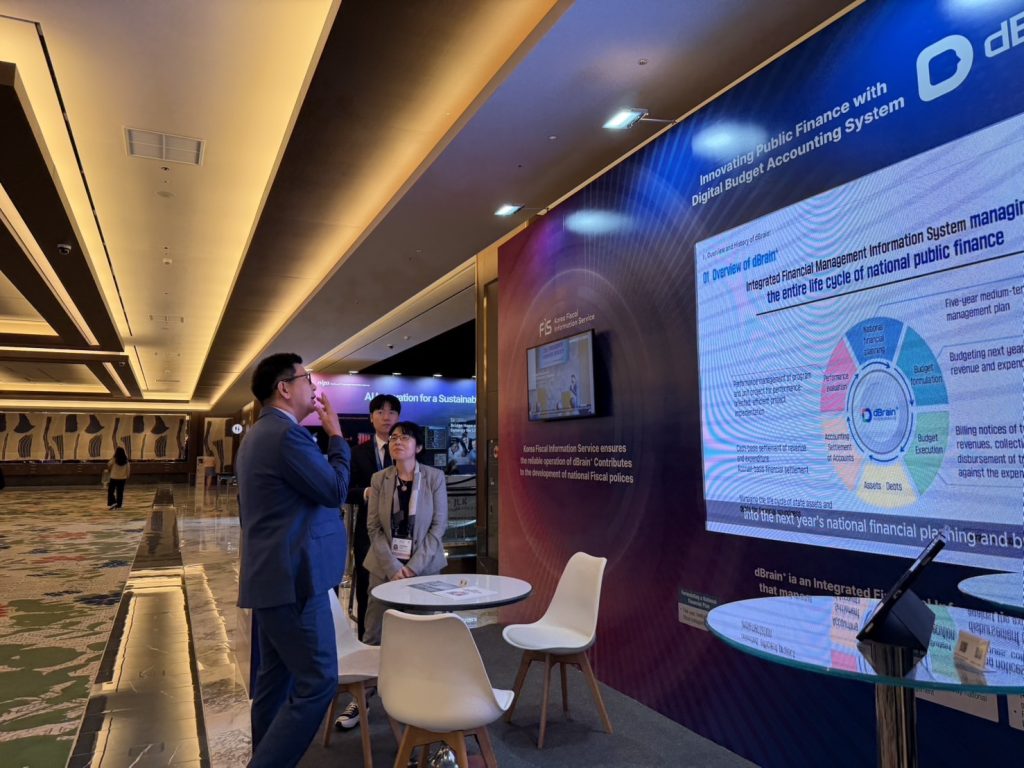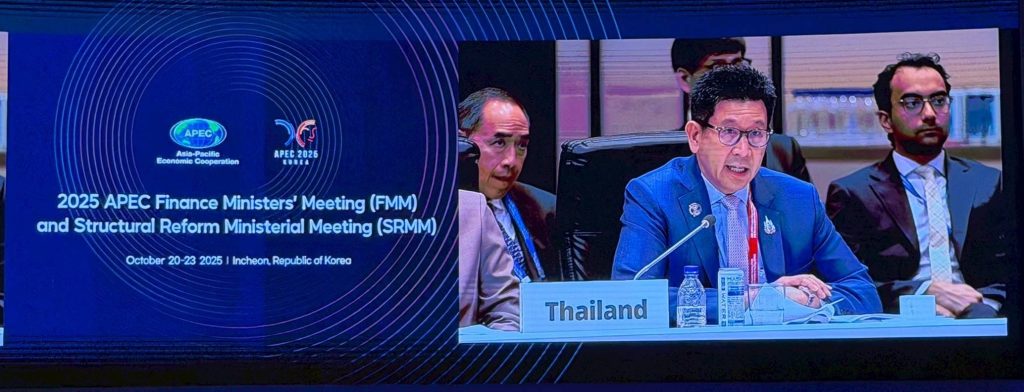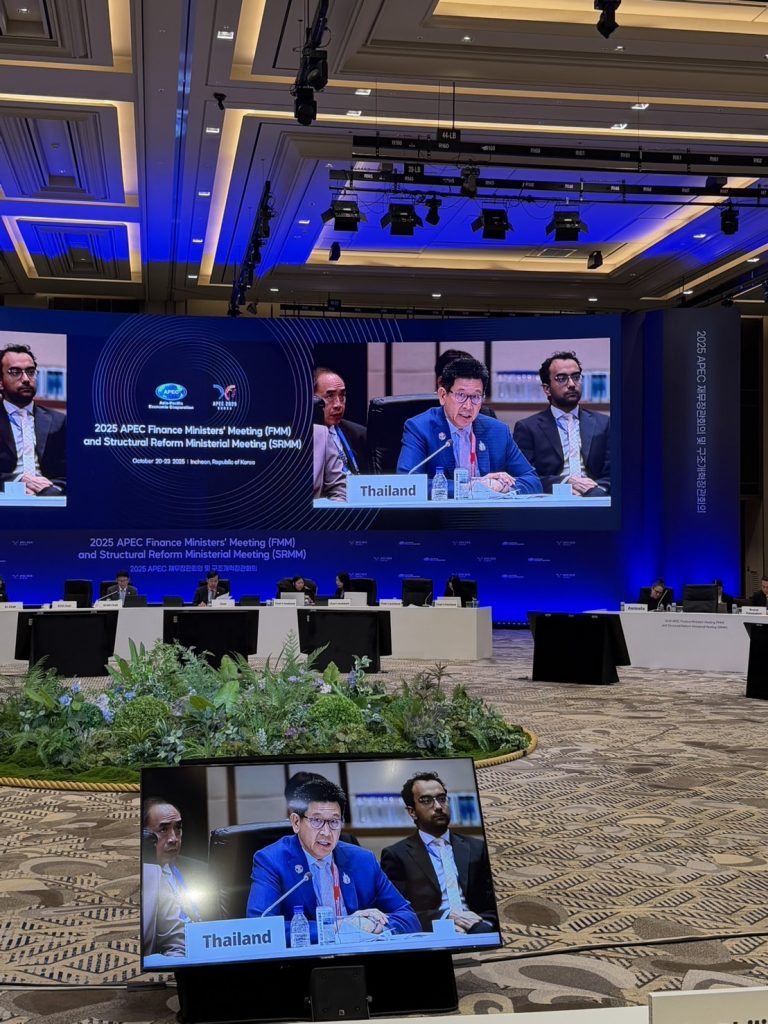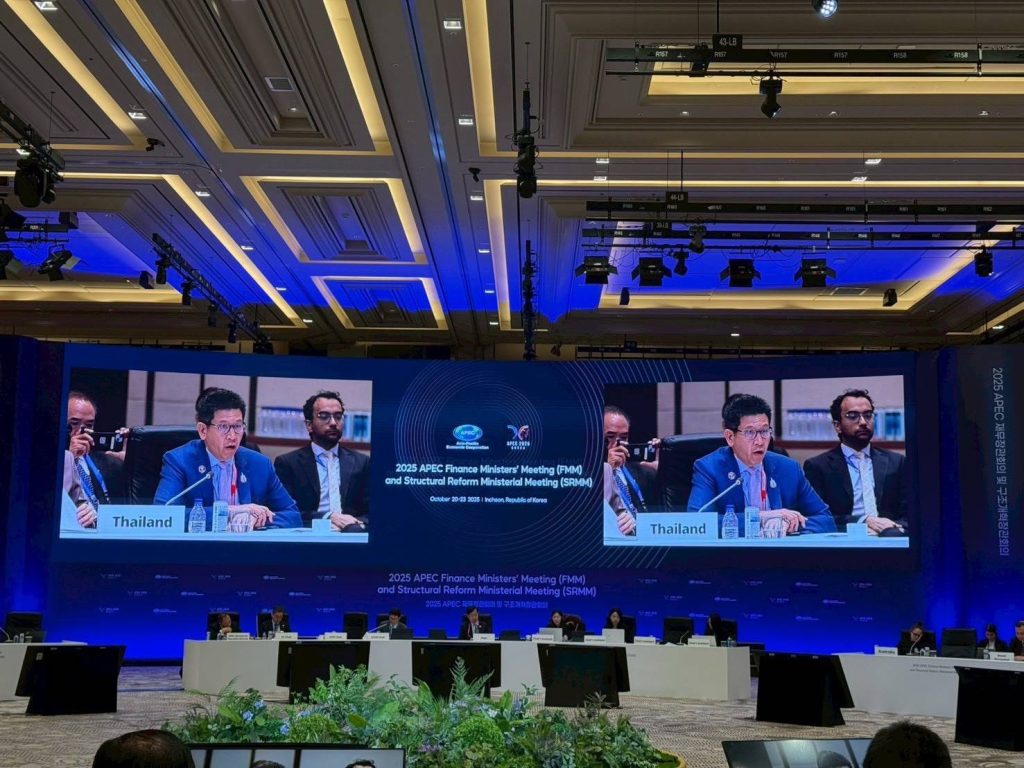On October 22-23, 2025, the Republic of Korea, as the APEC host for 2025, hosted the 4th APEC Structural Reform Ministerial Meeting (SRMM) in Incheon. Mr. Ekniti Nitithanprapas, Deputy Prime Minister and Minister of Finance, led the Thai delegation, accompanied by Ms. Onfah Vejjajiva, Secretary-General of the National Economic and Social Development Council, in her capacity as Thailand’s Senior Official to the APEC Economic Committee.
The meeting aimed to track progress and set strategic directions for APEC’s future structural reform efforts. It served as a crucial platform for exchanging approaches to address structural obstacles and enhance regional capabilities to support sustainable, inclusive, and innovative growth. The meeting discussed three key topics:
1. Structural Reform for a Sustainable Future: Connect, Innovate, Prosper – Exchanged views on the role of structural reform in creating a sustainable and inclusive economy. It reflected the importance of regional cooperation under APEC’s structural reform framework to create a competitive, transparent, and open environment, promote business resilience, and create inclusive opportunities. This includes leveraging innovation, technology, and workforce skill development to increase productivity and digital transformation.
2. Structural Reform to Enhance Connectivity – Focused on building connections between APEC economies through infrastructure development, regulations, and cooperation mechanisms that facilitate efficient trade, investment, and resource mobility. This aims to create competitive and fair markets and business environments. Additionally, supporting MSMEs and developing digital infrastructure, skills, and cybersecurity helps businesses use digital technology to enter new markets, improve efficiency, and sustainably enhance competitiveness in the region.
3. Structural Reform to Promote Prosperity for All emphasizes inclusive and equitable economic growth while creating economic and social opportunities for all sectors to reduce inequality and pursue sustainable development. Structural reform supports access to basic services and enhances the capacity of MSMEs through access to funding sources and technology to expand business and employment opportunities, while establishing a stable social protection system, reducing digital inequality, and supporting adaptation to demographic and environmental changes, making the economy resilient and sustainably growing in the long term.
On this occasion, the Deputy Prime Minister emphasized the necessity of economic structural reform to address various challenges, particularly the middle-income trap, inequality, and impacts from climate change, while proposing approaches to drive reform in three areas: Connect, Innovate, and Prosper, which are the operational approaches of the Republic of Korea as APEC host in 2025 with key issues as follows:
1. Connectivity – Thailand prioritizes enhancing government mechanisms to be efficient, transparent, and responsive to long-term development needs through reforming regulations that hinder business operations, developing e-Customs systems and National Single Window to facilitate trade, and using AI technology to reduce digital trade barriers and procedures.
2. Innovation – Thailand aims to develop an innovation and technology-driven economy under the BCG economic model, which focuses on creating added value from efficient resource use. It also invests in digital infrastructure and workforce skill development in clean energy, smart agriculture, and advanced robotics to open new economic opportunities and enhance competitiveness.
3. Inclusive Prosperity – Thailand emphasizes the concept of growth that leaves no one behind, focusing on targeted and efficient government spending. For example, the Half-Half Plus project uses AI technology to manage subsidies for essential expenses for citizens while encouraging learning and adaptation to the digital economy era.
Additionally, the meeting adopted the Joint Statement of the 2025 APEC Structural Reform Ministerial Meeting. The statement emphasizes structural reform to create a sustainable, inclusive, and innovation-driven economy by enhancing connectivity between member economies, supporting a competitive business environment, and promoting digital transformation. It also pushes for innovation to increase the region’s growth potential and competitiveness.
